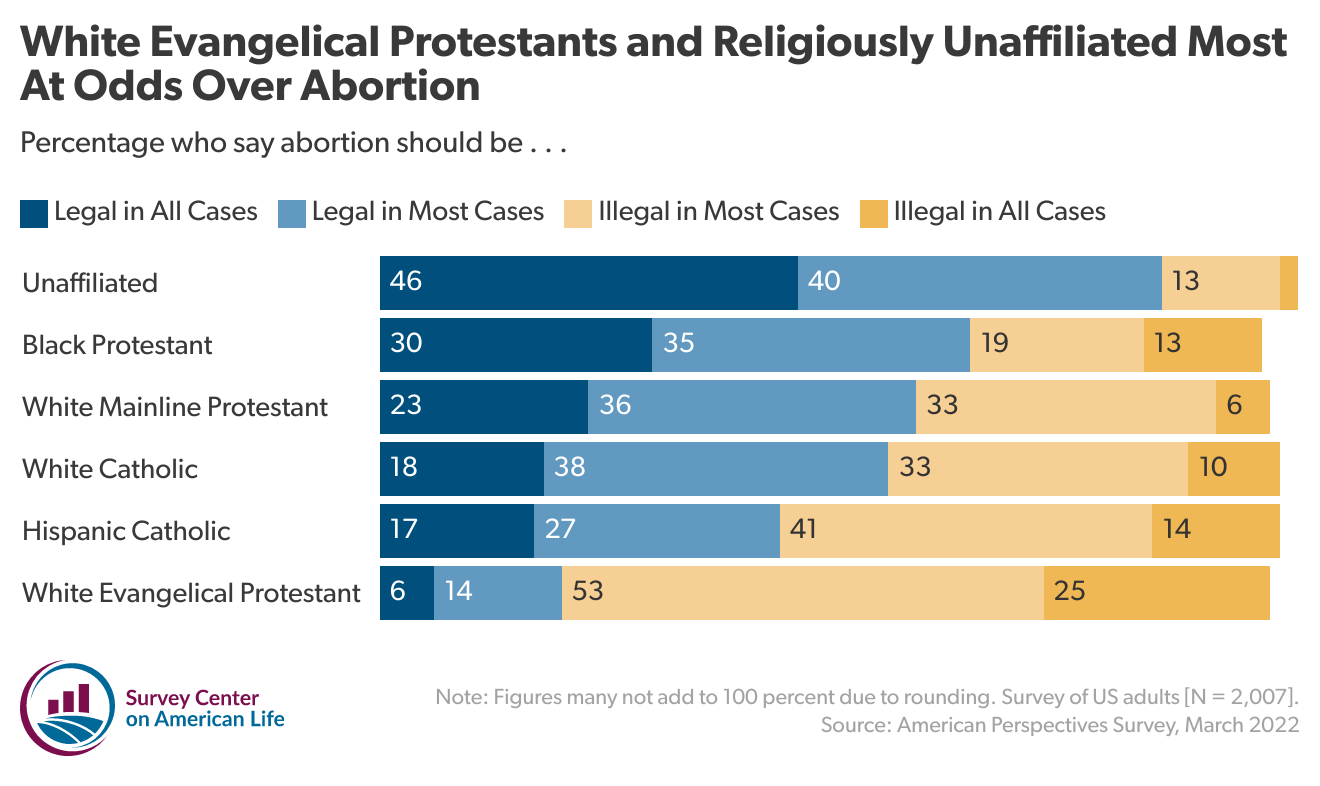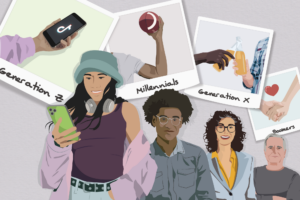Religious Divide Over Abortion
May 3, 2022

The Supreme Court appears poised to overturn Roe v. Wade, the 50-year-old ruling that legalized the right to abortion in the U.S. But Americans consistently show support for legal abortion in at least some circumstances. A majority (56 percent) of the public says abortion should be legal in most or all cases. Approximately four in 10 (41 percent) say it should be illegal. Notably only one in 10 (11 percent) Americans say abortion should be illegal without any exception.
Views differ significantly across religious traditions, but few religious groups oppose the legal right to an abortion. White evangelical Protestants register the strongest opposition to legal abortion. Seventy-eight percent of White evangelical Protestants say abortion should be illegal in most or all cases. Only 20 percent say abortion should be legal. A majority (55 percent) of Hispanic Catholics also believe abortion should be illegal. In contrast, a majority of White Catholics (56 percent), White mainline Protestants (59 percent), and Black Protestants (65 percent) say abortion should be legal. No group more strongly supports the legal right to abortion than religiously unaffiliated Americans—86 percent say it should be legal in at least most cases.








